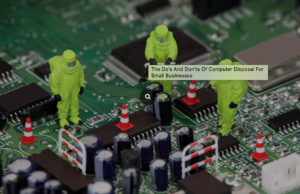University of Sheffield study discovers that the honeybee can solve a type of maths test using non-numerical cues
The honeybee can solve a type of maths test without any need for numbers – a discovery that could be used to develop smarter artificial intelligence – according to new research from the University of Sheffield.
In the study, by researchers in the University’s Department of Computer Science and their international collaborators, published in the journal Proceedings of the Royal Society B, honeybees were found to be using continuous, non-numerical cues to solve a maths problem.
The insight into how honeybees solve numerical problems could be used to design more sophisticated machines based on the brains of animals, which have evolved to find the simplest, most efficient way to carry out certain tasks.
The methods used in the study could also provide a new, alternative blueprint for testing numerical cognition in animals. Most previous studies attempt to control for at least one non-numerical cue, whereas the Sheffield study is the first to propose a new method that carefully assesses non-numerical continuous cues.
Determining how different brains, especially those with a miniature brain, solve numerical tasks also provides a valuable insight into the evolutionary roots of cognition.
The ability to use numbers is a powerful cognitive capacity of humans, but replicating their full sophistication via AI is not possible with current approaches. With animals often being very good at finding efficient and sometimes unexpected solutions to problems, it is worth finding out which of their shortcuts could be useful for developing autonomous machines
Through a task that is commonly used to test numerical cognition in bees and a variety of other animals, the Sheffield team discovered that honeybees can discriminate between placards displaying different numbers of elements without their brains having to process numerical data.
Honeybees were individually trained to identify placards showing different numbers of shapes. Some bees learned to find a sugary reward at the placards that had the most shapes on display while others learned to find the sugary treat at the placards showing the fewest number of shapes.
Once the bees learned this rule, they were able to quickly identify the placard with the highest or lowest number of shapes on them in order to find the sugary treat.
Since these visual cues are computationally simpler to process by a bee’s brain, it is a more efficient way for bees to use them in solving the task, instead of solving a complex cognitive task of numerosity.
To determine if the honeybee used non-numerical clues, they were then tested with two pairs of placards that all contained the same number of shapes but differed in edge length, convex hull and spatial frequency. None of the placards had a sugary treat and if the bees used numerosity they should have flown to each placard equally in search of a reward.
The study found that bees trained to find the placards with the highest number of shapes still flew to signs with the highest level of continuous variables and bees that were trained to find the placards with the lowest number shapes still flew to the signs with the lowest level of continuous variables, and ignored numbers. This suggests the honeybees responded to continuous cues on the shapes and not the number of elements.
Dr HaDi MaBouDi, the lead author on the paper who is based at the University of Sheffield, said: “The results of our study show that animals are incredibly clever and can solve tasks in effective and unexpected ways. This will be very practical in the future of artificial intelligence for designing smart machines based on animals that have evolved for some particular tasks.”
To further test the hypothesis, the bees were shown placards with visual cues that were opposite to the number of shapes on the placards. For example, placards that had three shapes on display but had a lower spatial frequency than the placards with two shapes.
To determine how efficient this non-numeric strategy was for the honeybee, the researchers also created a model based on known details of the honeybee brain. This bee brain model was able to solve several other similar numeric-based tasks without any need for number processing – similar to the real honeybees.
The research paper, Non-numerical strategies used by bees to solve numerical cognition tasks, is published in the journal Proceedings of the Royal Society B. To view the paper, visit: https://



 After reaching 160,000 players in more than 100 countries, the company has raised a $1 million round led by Twinkl Educational Publishing, with participation from first investor Christian Reyntjens of A Black Square family office, including one of the founders of Shazam.
After reaching 160,000 players in more than 100 countries, the company has raised a $1 million round led by Twinkl Educational Publishing, with participation from first investor Christian Reyntjens of A Black Square family office, including one of the founders of Shazam.